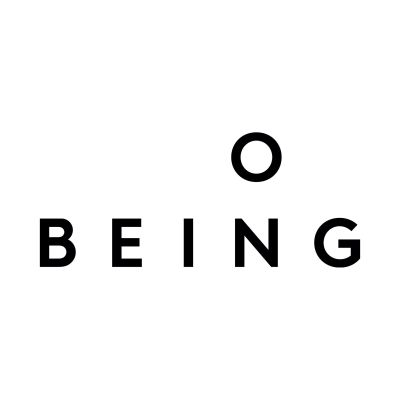Wisdom to replenish and orient in a tender, tumultuous time to be alive. Spiritual inquiry, science, social healing, and poetry. Conversations to live by. With a 20-year archive featuring luminaries like Mary Oliver, Thich Nhat Hanh, and Desmond Tutu, each episode brings a new discovery about the immensity of our lives. Hosted by Krista Tippett, Learn more about the On Being Project’s work in the world at onbeing.org.
https://onbeing.org
Gesamtlänge aller Episoden: 41 days 3 hours 50 minutes
episode 8: John Lipscomb and Catherine Roskam — Homosexuality and the Divided Church
The General Convention of the Episcopal Church has sharpened our culture’s intensifying focus on homosexuality. In a year of political and religious milestones for gays and lesbians, Gene Robinson became the first openly gay man to be elected an Episcopal Bishop. There were 11th-hour allegations of impropriety. But in the end, the laity, clergy, and House of Bishops of the Church confirmed his election. This week, we set aside the ins and outs of the Robinson controversy...
episode 7: Rebecca Chopp, Kecia Ali, and Mary Stewart Van Leeuwen — Women, Marriage, and Religion
Over the last four decades, women’s roles have changed dramatically — at home, in the work force and in religious institutions as well. In America, resistance to this is often couched in religious terms. Where there is a backlash against feminism and its repercussions, it is often embodied in religious practice. Host Krista Tippett speaks with three devoutly religious women who also call themselves feminist.
episode 70: [Unedited] Luke Timothy Johnson With Krista Tippett (On Marriage, Family, And Divorce)
American ideals of courtship and marriage echo with Biblical imagery — “bone of my bones” “flesh of my flesh.” But what does the Bible really say, and how has it been taught across the centuries in which the institution of marriage has changed dramatically? With a rabbi and a New Testament scholar, we explore nuances of biblical teachings about marriage, family, and divorce — the surprising ambiguities of the New Testament and the striking practicality of Jewish tradition across the ages...
episode 71: [Unedited] Elliot Dorff With Krista Tippett
American ideals of courtship and marriage echo with Biblical imagery — “bone of my bones” “flesh of my flesh.” But what does the Bible really say, and how has it been taught across the centuries in which the institution of marriage has changed dramatically? With a rabbi and a New Testament scholar, we explore nuances of biblical teachings about marriage, family, and divorce — the surprising ambiguities of the New Testament and the striking practicality of Jewish tradition across the ages...
episode 72: Elliot Dorff and Luke Timothy Johnson — Marriage, Family, and Divorce
American ideals and rituals of marriage, family, and divorce are infused with biblical messages. But what does the Bible really say, and how has it been taught across the centuries as the institution of marriage has changed dramatically and often? A rabbi and Christian theologian help us explore the nuances of Jewish and Christian teachings and reveal the striking practicality of Jewish tradition across the ages and the surprising ambiguities of the New Testament.
episode 10: Charles Haynes, Philip Hamburger, and Cheryl Crazy Bull — Religious Liberty in America: The Legacy of Church and State
At the center of our history of church and state is a troublesome irony. What began as an attempt to guarantee religious tolerance in the new world has at various times been commandeered by the most chauvinistic movements America has known. In spite of this, religious liberty has survived as an American ideal—one which we continue to test...
episode 15: David Fox and Bruce Weigl — Sacrifice and Reconciliation
In remembering the legacy of four World War II chaplains — Catholic, Protestant, and Jewish — who went down together with their torpedoed ship in 1943, we speak with David Fox, nephew of one of the chaplains. We also hear interviews with surviving veterans and veterans of the German ship that torpedoed them. Finally, a conversation with author, poet, and Vietnam War veteran Bruce Weigl...
episode 21: Sharon Salzberg, Lawrence Kushner, Anne Lamott, and Omid Safi — The Meaning of Faith
In our time, some associate the word “religion” with rigid dogma and the excesses of institutions. The word “spirituality” on the other hand can seem to have little substance or form. The word “faith” can appear as a compromise of sorts, pointing to the content of religious tradition and spiritual experience. The truth is, all of these words are vague in the abstract. They gain meaning in the context of human experience...
episode 58: Bruce Feiler — Children of Abraham
The sacred story of Abraham traverses the geography of the most bitter political conflict in the modern world — beginning in what is now southern Iraq and ending in the West Bank city of Hebron. Yet Abraham is the common patriarch of Judaism, Islam, and Christianity. We explore the story of Abraham in several traditions and why he might be important for people in our time...
episode 5: Peter J. Gomes, Jean Bethke Elshtain, and Chris Hedges — Religion in a Time of War
More than any crisis in modern memory, the War on Terror—including the current U.S. military presence in Iraq—is being debated in religious, usually Christian, terms. We explore the nuances of that debate with a former war correspondent, a political theorist, and a renowned preacher. We ask how and whether Christian principles really make a difference at this moment in our national life—and if not, why not?
